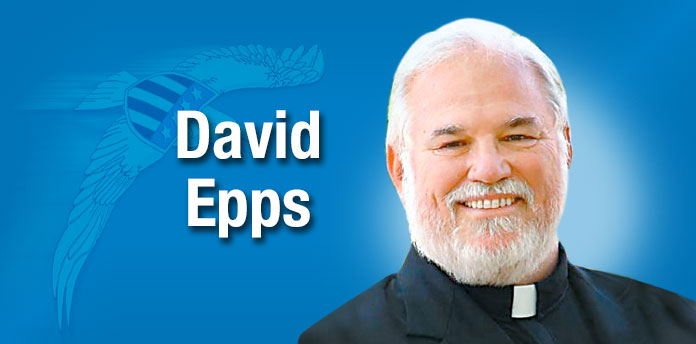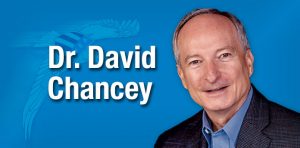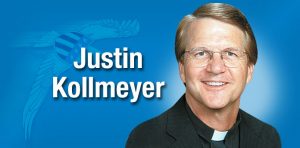On September 11, 2001, the nation became aware of a new brand of heroes. Among them were the firefighters and police officers who rushed into the Twin Towers as, literally, everyone within was seeking to rush out. On that day 412 emergency workers died in the attacks on the World Trade Center. These men and women, those who died and those who survived, became immediate symbols of courage and self-sacrifice, and were hailed as national heroes.
Soon, another group of men and women would leave their homes and families and travel across the world to Iraq and Afghanistan to bring retribution and keep the battle away from the homeland. There, too, far from home, in Afghanistan, some 2,500 would die and 22,000 would be wounded or maimed. These, too, were heroes, including those who did their duty and returned home safely.
The current enemy disrupting the country and, indeed, the world, is a virus. It cannot be stopped with bullets, bombs, or other weapons of warfare. But this enemy has already killed far more people, over four million, than the terrorists who waged war on much of the world.
Into this battle, a new type of hero has stepped. These are the people on the front line, they are the tip of the spear, and they, like firefighters, police officers, soldier, sailors, airmen, and Marines, put their lives at risk every day. These are the doctors, nurses, and medical workers and staff.
When the coronavirus first crawled out to greet its first victims, no one knew what to expect. How was it contracted? How was it spread? How deadly was it? How could it be stopped? Could it even be stopped? But, before any of these questions could begin to be answered, the hospital workers met the enemy without a vaccine, without any assurance that they would survive the encounters, and without any immediate answers.
Many were terrified, not only for themselves, but for their spouses, children, parents, and others they loved. Not only might they contract the deadly virus, but it was also possible they could carry it home to infect others. Doubtless, the risk was too great for some, and they left the hospitals and clinics for safer places to work. But most did not. Most got up every day to go into work to fight an unseen enemy that could kill them.
According to The Guardian, as of April 2021, 3,607 healthcare workers in the United States lost their lives to Covid-19. This is over 600 more than died on 9/11 in the terror attacks and over a thousand more than the number of U. S. troops killed in Afghanistan during 20 years of combat. It is also more than the number of military personnel killed in the war in Iraq.
Why do they continue to go to work? Because somebody has to. Somebody had to run into the Twin Towers. Somebody has to answer that late night call that a house is being robbed. Somebody has to go where no person wants to go.
This new category of heroes, day after day, demonstrate the same courage and personal self-sacrifice as the heroes of 9/11—the difference being that they have been at it for over a year and a half, almost without letup.
Just when it looks like they have a handle on it, a new surge or a new variant launches its attack. Many work twelve-hour shifts, quite a number have declined to take vacations because they are needed, some have that “1,000-yard stare” that was noticed among World War II combatants who fought for months without rest. Most of them stay exhausted much of the time.
I was in a hospital ICU room recently with a Covid-19 patient and their family. The patient was not doing well at all. The nurse, a veteran of nearly 20 years, attended to the family, answered questions, was encouraging, friendly, helpful, and I would even say “perky” behind the mask. Since she made room for questions, I asked, “How are YOU doing with all this?” She hesitated, her eyes filled with tears, and she put her head in her hands and sobbed. The family of the patient gathered around her and prayed for her, forgetting for a brief time, their own grief.
Why do people become doctors, nurses, firefighters, soldiers, police officers, and medical workers? Most of them give one of two answers: (1) To help people, and (2) to make a difference. Almost none of them expect to die in the line of duty, to get killed on the job, or to have their lives taken in a foreign land. Most don’t ever anticipate watching people, patients in this case, die almost every day, one after the other, despite their best efforts. It takes a toll.
Unlike the movie or comic book heroes, our heroes are fragile. Life, and especially sorrow and death, affects them. Military veterans kill themselves at an average rate of 22 each day. Too much death, too much loss, too much violence takes a terrible toll. We have no idea how our medical heroes in the days and years to come will respond to what they’ve seen and experienced in the seemingly never-ending season of Covid.
Last week I went to an emergency room for what I thought was an infected appendix. It turned out to be a severe (to me) case of diverticulitis. The ER was jammed, as it often is, and the staff was running to try to keep up. I decided to be the one guy that day who was going to be a good patient. By the time I arrived, the staff had already put in seven hours. I would be there an additional six hours so, by the time I left, they had all completed a 12-hour shirt.
Not once did I see a bad attitude. From the front desk folks, to the chaplains, to security, to radiology, and all the rest, tired people were focused on the needs of others. Not once was a nurse or doctor short or outwardly irritated with a patient. Everyone that I observed tried to bring comfort to the dozens and dozens of patients who came through the door. I thought, “How do these people do this, especially now?” Yet do it they did. Heroes every single one.
To all those front line medical people who deal with tragedy and death every day, who give hope and comfort, who encourage and compliment their patients, who often never stop for a lunch break or a cup of coffee, who go behind closed doors and cry when someone they cared for has died, and who stumble home dead tired at the end of the shift hoping that the virus hasn’t come with them — Thank you.
Thank you for your sacrifices, thank you for your tireless efforts even when you are exhausted, thank you for the smiles when on the inside you weep, thank you for caring for even the patient who is beyond hope, thank you for your compassion in the face of suffering, and thank you for steeling yourself each shift and going through the door when you know that dangers lurk on the other side. Those of us who know what you do appreciate you. You are the heroes we need for such a time as this.
[David Epps is the Rector of the Cathedral of Christ the King (www.ctk.life). During the pandemic, the church is open at 10:00 a.m. on Sundays but is also live streaming at www.ctk.life. He is the bishop of the Diocese of the Mid-South (www.midsouthdiocese.life) He may contacted at [email protected].]











Leave a Comment
You must be logged in to post a comment.